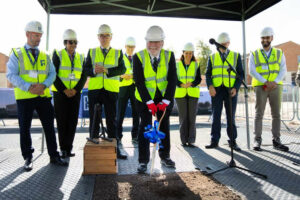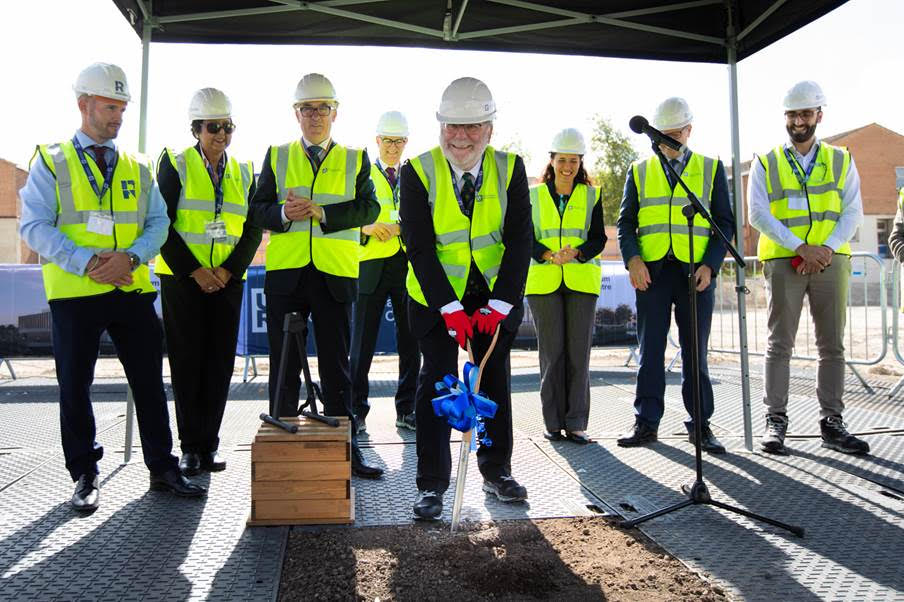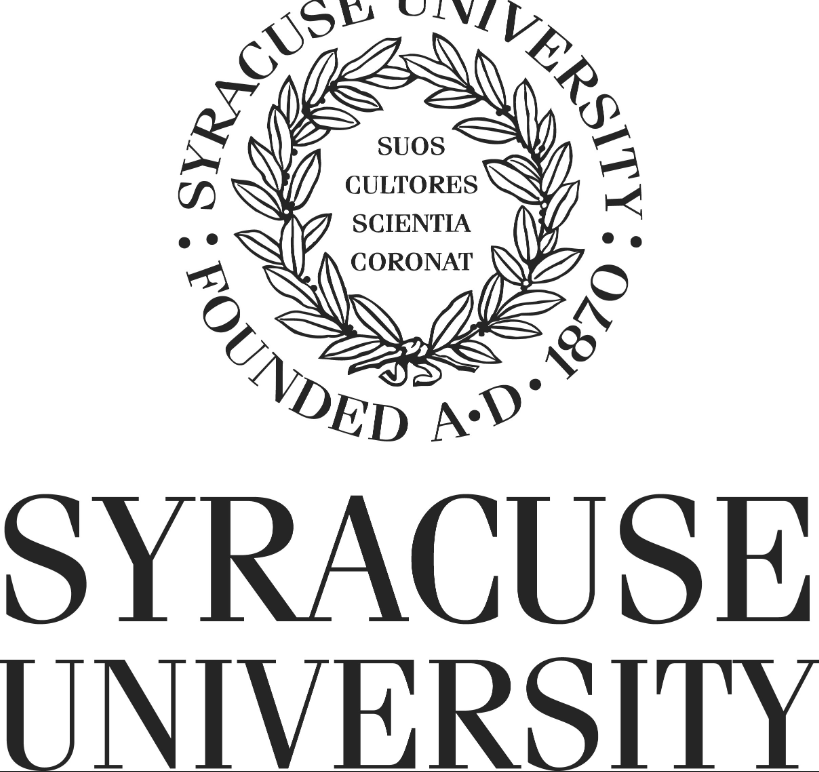
PRESS RELEASE — A breaking-ground ceremony was held at the UK’s National Quantum Computing Centre (NQCC) facility in Oxfordshire, ahead of the commencement of construction works. Professor Sir Peter Knight, Chair of the National Quantum Technology Programmes Strategy Advisory Board led the formal breaking-ground ceremony at the building site, based within the Rutherford Appleton Laboratory (RAL) at the Harwell Campus.
Quantum computing has the potential to solve problems that are practically impossible even for the fastest of today’s supercomputers. Unlocking this power will catalyse the development of new technologies to deliver benefits across society, ranging from the design of enhanced batteries for electric vehicles through to speeding up the discovery of new medicines and materials, as well as identifying the most efficient use of resources to help us become an environmentally-sustainable society.
The NQCC is a new research institution, representing a £93 million investment through UK Research and Innovation (UKRI). The centre is being delivered jointly by the Engineering and Physical Sciences Research Council (EPSRC) and Science and Technology Facilities Council (STFC). The NQCC is dedicated to accelerating the development of quantum computing by addressing the challenges of scaling the emerging technologies, enabling the UK to remain at the forefront of this transformative new field. The national centre is part of the UK’s National Quantum Technologies Programme (NQTP) – a ten-year, £1 billion programme that aims to ensure the successful transition of quantum technologies from laboratory to industry.
UKRI Chief Executive, Professor Dame Ottoline Leyser said, “This is an important step forward in the journey towards creating a flagship facility for the UK quantum community to harness the exciting potential of this technology. Breaking ground on this site brings us closer to realising our ambition of addressing the challenges in this burgeoning field by bringing together experts from the public, private and third sectors into one hub.”
After breaking the ground Professor Knight said, “One of the most exciting things about quantum computing is that it will revolutionise the way that we can do all sorts of computational tasks, which at the moment are really limiting us. There are many examples of how we can use a quantum machine, for example, it is going to transform logistics and the simulation of important chemical processes.”

The Centre will work with businesses, government and the research community to deliver quantum computing capabilities for the UK and support the growth of the emerging industry. Working closely with industry and research organisations, the NQCC will provide access to quantum computers as they come on stream, leading to new jobs, skills and knowledge creation. This will help UK businesses and researchers to tap into the potential of this technology to develop a range of applications for quantum computing, fully unlocking its capabilities.
The landmark facility will build on the UK’s existing strengths in quantum computing, establishing the NQCC as a world-leading scientific research institution. The ambition is to foster a vibrant environment that promotes collaboration between technologists and researchers, and attracts visitors and industry interest from across the UK and internationally. The mixed provision of office, meeting and laboratory spaces will enable multidisciplinary teams to collaborate, providing the necessary infrastructure and an environment in which to design, build, operate and host quantum computers. The facility is due for completion in early 2023.
Set to open in mid-2023, the 4035 sq. meters (1930 sq. meters footprint) building will ultimately provide space for over 120 residents and researchers from academia, industry, government, quantum partner organisations and quantum start-ups.
Harwell Science and Innovation Campus was chosen as the ideal site for the hub as it also houses other complementary research capabilities at STFC’s Rutherford Appleton Laboratory and Diamond Light Source. Hosting the facility on the RAL site means the centre will be independent of any business or university ties, creating an ideal position to attract new industrial partners. Partners will be able to take advantage of the co-location of these national research facilities to collaborate and make progress in their own scientific research.
Commenting on this milestone, the NQCC Director Dr Michael Cuthbert said, “Watching our teams across UKRI working so well together with our external contractors throughout the conceptual, and engineering design stages has been really pleasing, especially with the additional challenges of home working and limited access to the site. The programme is not just about the facility and we continue to build our team as we recruit expertise into the new Centre and deliver our technology programme in parallel. Exciting times for the NQCC and today is an important milestone for us.”
Further information about the building
The construction across the three floors will be managed by the STFC, with the ground floor housing the primary and secondary laboratories for the development and operation of multiple quantum computing systems, whilst also providing areas for workshops, collaborations and training. The first floor will house research offices for scientists, meeting rooms, and social spaces for scientific collaboration on quantum theory, quantum engineering and control systems, quantum application research and quantum readiness for the UK industry. Finally, the top floor will provide engineering mechanicals and plant areas to support the facility operations.
The foundation of the ground floor is designed to shield quantum systems from vibrations and electromagnetics to prevent interference to quantum systems, including stainless steel reinforcement and non-ferrous materials used within the fabric of the structure, its finishes, and the Mechanical, Electrical and Plumbing (MEP) services. The labs are designed to be flexible to support new avenues of quantum technology developments as the NQCC grows and, also as the quantum computing eco-system emerges. The aim is to create a close to perfect, stable environment to develop, operate and scale, that will help in production of the specialist quantum technologies.
Source: UKRI
For more market insights, check out our latest quantum computing news here.



















